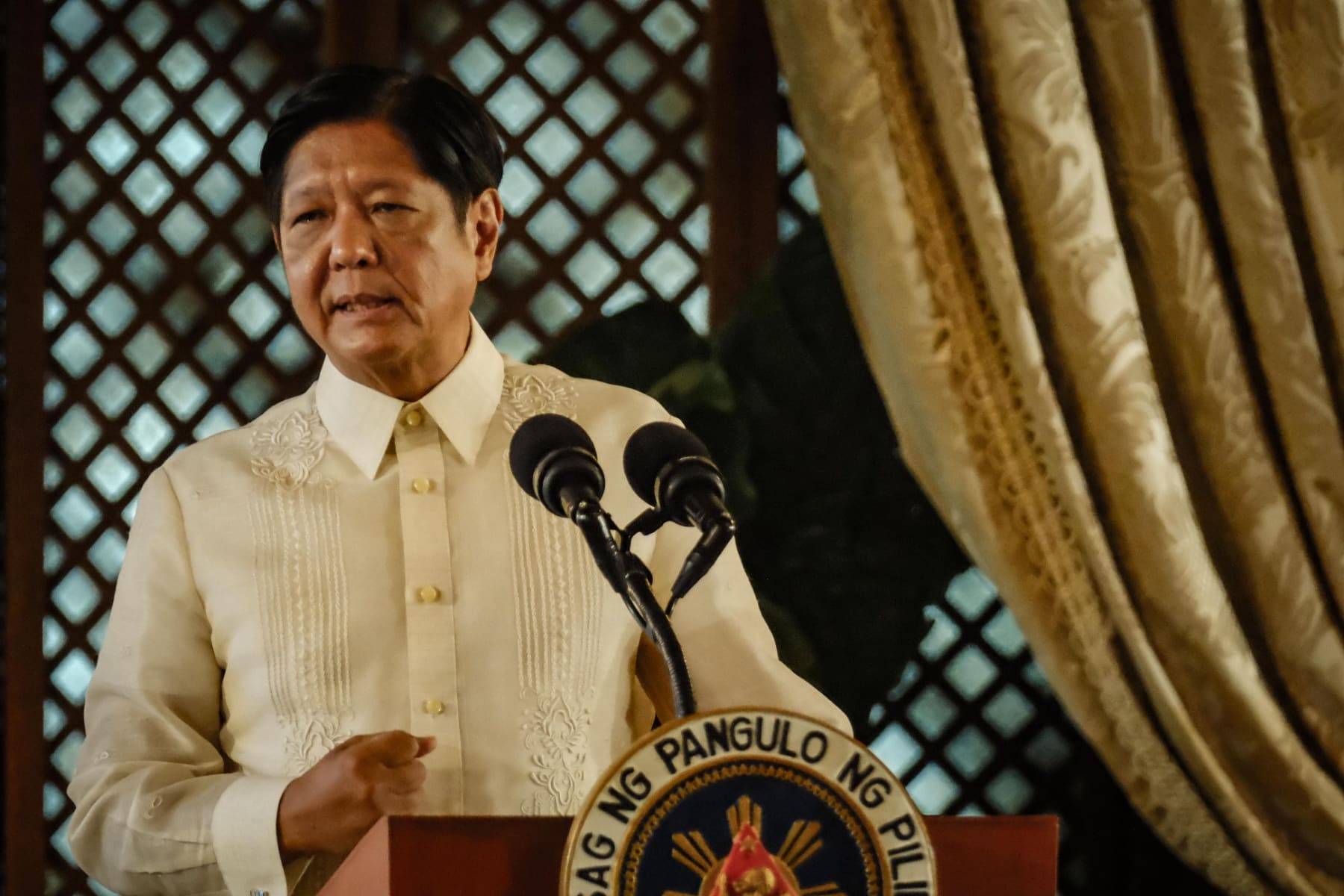
President Ferdinand Marcos Jr. in one of the events at Malacañan Palace on September 2, 2024. PHOTO BY YUMMIE DINGDING/ PPA POOL
President Ferdinand Marcos Jr. reiterated his repeated commitment to transform the military into a “world-class force” as he presided over the joint graduation rites of the officer candidates schools of the armed services.
But the Commander in Chief, and even AFP chief of staff Gen. Romeo Brawner Jr., both struggled to pronounce the monikers of the graduating classes that comprised of 609 new second lieutenants and ensigns of the army, air force and navy.
At the graduation rites in Camp Aguinaldo in Quezon City on Friday, the President and Brawner stumbled in pronouncing the Philippine Army’s “Katarakian” Class 61-2024, the Philippine Air Force’s “Sigmandigan” Class 2024, and the Philippine Navy’s “Mangisalakan” Class 42-2024.
READ: Marcos aims to make PH military a ‘world-class force’
The Inquirer tried, but failed to get an explanation of the meanings of the words, that are likely coined and portmanteaus.
In his remarks before the President’s speech, Brawner floundered a bit in pronouncing Mangisalakan and remarked: “I hope I pronounced it right, it’s hard to pronounce.”
A few minutes later, it was the Commander in Chief’s turn to falter.
“To the Philippine Army class, Katarakian, Philippine Navy class, Mangisalakan—it’s getting more difficult to think of class names because so many already came before you! But you are showing very good imagination with all of this! Air Force class, Sigmandigan, congratulations on your graduation,” Mr. Marcos said with a chuckle.
On Friday morning, 609 graduates of officer candidates schools of the three services were sworn in as new second lieutenants and ensigns.
Of this figure, 361 came from the Philippine Army, 173 cadets from the Philippine Air Force, and 75 cadets from the Philippine Navy.
The three services’ officer candidate schools, operational since the 1930s, was meant to train qualified enlisted personnel and civilians with baccalaureate degrees to be commissioned in the AFP.
Before commissioning the new military officers, the President assured them that the government will continue investing in the military’s modernization and in the soldiers themselves.
Guiding principle
“Let this be your guiding principle as you step forward: In the face of evolving threats and modern warfare, innovation, technical expertise and leadership rooted in service will be your most powerful weapons,” Mr. Marcos said.
He vowed that the government is “committed to transforming our AFP into a world-class force that is a source of national pride and national security.”
“This transformation begins with investing in our people—in their talents, the specialists, the leaders who will bridge the gap between tradition and innovation. We will modernize your equipment, enhance your training programs, ensure that you are equipped to face challenges not just of today but also of the future,” the Commander in Chief said.
Mr. Marcos added: “Because together, we will build an AFP that will stand as a beacon of strength, of alliance, resilience and technological excellence.” INQ